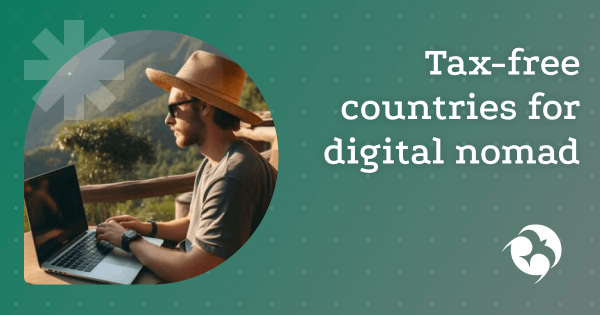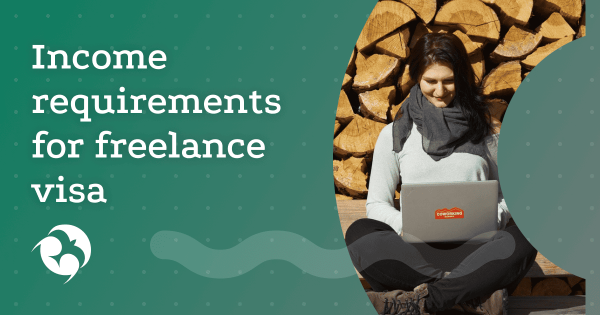Digital nomadism has become not just a fashion trend, but a full-fledged life strategy of millions of professionals around the world. At the same time, personal tax optimization has become a key factor in choosing a place of residence. This is understandable – when income comes from different countries, and work is not tied to a specific territory, it is logical to look for countries with the most favorable tax conditions. In this article, we will look at the programs and jurisdictions that offer digital nomads the most favorable tax conditions in 2025.
Croatia
The Croatian program is designed for citizens who do not have EU, EEA or Swiss citizenship. It is aimed at remote specialists working in foreign companies or running their own business that is not registered in Croatia. Applicants must confirm a monthly income of at least 3,295€. An alternative option is to have about 40,000euros in a bank account for an annual stay.
Allows for the inclusion of close family members. These include the spouses, minor children, and parents of the main applicant. The minimum income for each family member should increase by 10% (an additional € 329.50/month). When including a spouse and two children, the required amount reaches 3,624€ per month. It does not provide a direct path to obtaining permanent residence or Croatian citizenship.
The main limitation of the program is the prohibition of working with Croatian employers. Digital nomads cannot provide services to local companies or find jobs in Croatian companies. A prerequisite for obtaining a visa is the availability of private health insurance valid for the entire period of stay in the country.
An important feature is that even if they stay in Croatia for more than 183 days a year, digital nomads do not become tax residents of the country. This radically distinguishes the Croatian program from most other countries, where a long stay automatically entails tax obligations. Holders are exempt from paying income tax in Croatia. The 0% rate is valid regardless of the length of stay in the country.

- We will answer all your questions
- We will help you choose the best option
- We will guide you through every step or do everything for you
Hungary
Hungarian “White Card” It is also created for citizens of Switzerland and non-EU and EEA countries. Remote specialists working for foreign companies or providing services as freelancers are suitable.
Applicants must confirm a stable monthly income of at least 3,000€. An additional advantage will be the availability of about 10,000€ in a bank account (optional). The fundamental limitation concerns employment. Nomads cannot work for Hungarian companies or become their owners. Work experience is also important – candidates must have been employed for at least 6 months at the time of application.
Hungary offers one of the most profitable tax schemes for digital nomads in Europe. For stays of less than 183 days per year, nomads are fully exempt from paying income tax. The rule applies regardless of the amount of earnings. If the 183-day limit is exceeded, permit holders automatically become tax residents and are required to pay income tax at a rate of 15%. Income declaration remains a mandatory requirement. Even if there are no tax obligations, nomads must file a declaration by May 20 next year.
The initial validity period of the “White Card” is 1 year. The main feature is the possibility of a one–time extension for another year. The registration procedure takes up to 3 months from the start of the collection of documents to the receipt of a physical card. After the expiration of the two-year maximum period, holders must leave the territory of Hungary.
The program has restrictions on family support. Family members cannot submit applications together with the main applicant. Initially, everything was created for individual applicants. Relatives may obtain separate residence permits for other reasons.
Visa holders get access to the Hungarian healthcare and education system. The mandatory requirement remains the availability of international medical insurance valid for the entire period of stay.
Montenegro
The financial bar is moderate. The main applicant must confirm a monthly income of at least 1,350€ for the previous 12 months. The key limitation concerns domestic employment. Nomads in Montenegro cannot work for local companies or provide services to local clients. Additional requirements include no criminal record, a valid passport for at least 6 months, and proof of employment at the time of filing. A prerequisite for obtaining a visa is the availability of international medical insurance.
Holders of a Digital Nomad visa are fully exempt from paying income tax in the country. The exemption is valid regardless of the length of stay or the amount of income. The tax benefits apply only to income from working with foreign clients (with money credited to foreign bank accounts). The benefits are due to the special status of the visa, which does not provide a path to permanent residence or citizenship.
An important condition is that nomads are exempt from paying mandatory social contributions when working for foreign clients. The usual rates are 20.5% for retirement and 10.5% for medical needs.
The initial validity period of the digital nomad visa is 2 years, with the possibility of extension for another 2 years. The registration procedure takes from 1 to 3 months and requires the personal presence of the applicant in Montenegro. A prerequisite for the renewal of the status is proof of residence in the country for at least 183 days per year. Nomads should not be absent from the country for more than 30 consecutive days during the year.
The program provides for the inclusion of close family members of the main applicant. The family includes spouses, minors, and adopted children under the age of 18. The application for family reunification is submitted after receiving the basic permission. Financial requirements increase proportionally with each family member. For a spouse or first child, the minimum income increases to 1,660 € per month. Each additional family member adds €310 to the required amount.
Digital nomads in Montenegro do not get access to the public health system. Free medical care is provided only to employed residents and their family members. Nomads with a Digital Nomad visa are excluded from this category.
Argentina
The Argentine digital nomad program is designed for foreigners who work remotely for foreign companies or run their own online business. The applicant must confirm an income of approximately $2,500 per month. It does not provide for automatic family reunification. Each relative must submit a separate application for a different type of permit.
The primary permit is valid for 6 months from the date of entry. Registration takes up to 3 months. First, an online application or documents are submitted through the embassy, then, after receiving a single electronic decision, the applicant enters the country and issues a resident card. The visa can be extended once for another 180 days. After 360 days of stay in the country, you must leave the territory or change the basis of legalization.
Visa holders are not included in the compulsory social insurance system and do not receive access to government medicine. To enter, you must have valid medical insurance issued by an Argentine company, covering all emergency and planned cases.
Thailand
Destination Thailand Visa (DTV) available to foreigners over the age of 20 who work remotely for foreign companies or run their own online business. To apply, you must confirm that you have at least 500,000 THB (≈$14,500) in your account for the last 6 months. Employment in Thai companies is prohibited.
Digital nomads with DTV are exempt from paying income tax on foreign earnings, provided they do not import them into Thailand in the year of receipt. Tax residency occurs after 180 days of stay in a calendar year, and only then is foreign income taxable when funds are transferred to the country.
The spouse and children of persons over 20 years of age can be submitted together with the main applicant. Confirmation of an additional 100,000 THB in the account is required for each additional participant. Family members receive the same length of stay and preferential tax treatment for their foreign earnings, but are not eligible to work for Thai companies.
The program does not provide for an automatic transition to permanent residence or citizenship. DTV holders are required to have international or Thai health insurance covering the entire period of stay in the country. The public health system is not available to them. Social benefits (pensions, allowances) for visa status are not provided.
Japan
The Japanese digital nomad program is available to citizens of the Russian Federation and the Republic of Belarus if they have another passport. It is designed for highly paid remote specialists with an annual income of at least 10 million yen (approximately $67,000).
The visa is available exclusively to citizens of 49 countries that have agreements on avoidance of double taxation with Japan and visa-free regime. Russia and Belarus are not included in this list, which means that it is impossible to obtain a visa directly using Russian or Belarusian passports. An additional prerequisite is to work exclusively for foreign companies or clients. Employment in Japanese organizations is prohibited. It does not provide a way to obtain permanent residence or citizenship.
Holders of a Japanese digital nomad visa receive substantial tax benefits. Since the visa duration is limited to 6 months, nomads do not become tax residents of Japan. Tax residency is granted for stays of more than 1 year. The nomad visa excludes this possibility.
The program provides for the inclusion of family members of the main applicant. Spouses and minor children can obtain accompanying visas for the same period. A critical condition for family members is that they must also be citizens of countries on the list of 49 permitted jurisdictions. Health insurance must cover all family members with a minimum coverage of 10 million yen per person.
Bulgaria
The residence permit program through the opening of a representative office is addressed to the heads and owners of existing foreign companies with an annual income of at least 1.5 million euros and a turnover of 25 million euros. The company registers only a representative office in Bulgaria, the actual activity remains abroad. A prerequisite is that the authorized representative in Bulgaria has a notarized power of attorney to register a representative office and conclude a lease agreement. Residency through a representative office does not entail the obligation to pay corporate or income tax on the income of the parent company.
Spouses and children under the age of 18 are allowed to register. There is an additional payment for each family member to the registration fee: 1,800€ per adult and 500€ per child. Family members receive a similar residence permit without the right to run their own business in Bulgaria. Holders of a residence permit are required to arrange private medical insurance for all family members for the entire duration of the permit.
After 5 extensions, representatives can apply for permanent residence. However, this path does not lead to citizenship.












